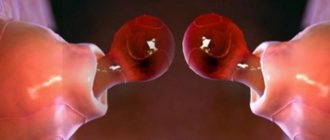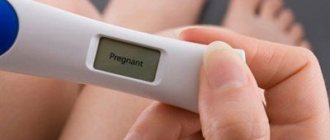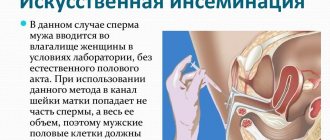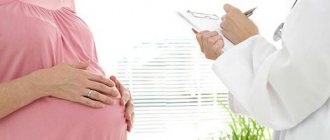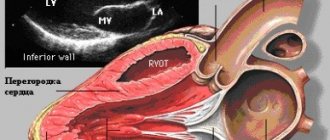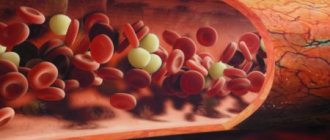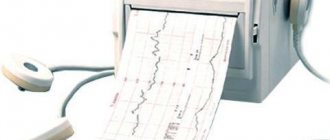Unfortunately, not all women have the opportunity to become pregnant on their own. There are many reasons for this. But, fortunately, in most cases, such women have a significant chance of still experiencing the joy of motherhood, because there is a procedure for in vitro fertilization. Its essence is that a woman is stimulated with hormone-containing drugs to ovulate (as a result of which 10-14 eggs mature simultaneously), then these eggs are taken and fertilized in vitro, after which the developing embryos (on days 3-5) are transplanted into the uterine cavity.
But there is also in vitro fertilization in the natural cycle, when drugs are not used to stimulate the growth of follicles. In this case, the effect on the woman’s body is more gentle, because the hormonal background is not subject to such a strong impact (stimulation with hormones is dangerous for the development of ovarian hyperstimulation syndrome, which leads to undesirable consequences). But there are much fewer cases of pregnancy with IVF in a natural cycle. And another important nuance: carrying out the in vitro fertilization procedure in a natural cycle is possible only when a woman has ovulatory cycles. Such fertilization is also called “IVF without stimulation”, “natural IVF cycles” and “IVF in unstimulated cycles”.
In most women of reproductive age, a follicle matures almost every month, containing one mature egg, ready for fertilization. In in vitro fertilization, it is removed from the woman's uterus and fertilized in a test tube (in vitro). After the embryo is transferred to the uterus, the pregnancy develops safely. But this is only in theory, everything is so simple and easy. In fact, specialists face some difficulties that it would be nice for a woman to know about. Based on the above, we will consider all the pros and cons of in vitro fertilization in unstimulated cycles.
Advantages of in vitro fertilization in a natural cycle
The obvious advantages of IVF in a natural cycle include:
- no risk of ovarian hyperstimulation syndrome;
- low likelihood of bleeding and the development of inflammatory processes, as well as complications (such as cancer of the genitals and mammary glands);
- less physiological and psychological discomfort due to the lack of ovarian stimulation;
- high quality of endometrium for implantation (higher than in cases of stimulated cycles);
- low probability of multiple pregnancy;
- significant reduction in the risk of premature birth;
- the possibility of carrying out the procedure for several months in a row.
Advantages of the protocol
The main advantages of IVF in a natural cycle include:
- maximum physiology;
- lack of hormonal load on the mother’s body;
- no risk of developing ovarian hyperstimulation syndrome;
- prevention of multiple pregnancy;
- no questions arise regarding the storage and destruction of embryos not transferred into the uterine cavity;
- you can carry out several protocols in a row;
- low cost.
The activity of the female reproductive system is regulated by the hypothalamic-pituitary system according to the feedback principle. That is, the hypothalamus responds to hormone deficiency by activating the synthesis of liberins. They, in turn, stimulate the production of tropic hormones in the pituitary gland. Under the influence of tropic hormones, the ovaries produce estrogens and gestagens, the concentration of which depends on the phase of the cycle. Conversely, with a sufficient amount of estrogens and gestagens, statins are produced in the hypothalamus - substances that inhibit the production of tropic hormones and, as a consequence, the activity of the ovaries.
Conventional IVF protocols (long, short, and others) provide for the regulation of hormone production. With IVF in a natural cycle, this is excluded, therefore this type of in vitro fertilization is considered the most physiological.
During conventional protocols, a woman experiences a fairly strong hormonal load. This can lead to deterioration in health, negatively affect the functioning of the liver and kidneys, and the condition of the mammary glands. With IVF in a natural cycle, all these undesirable effects are absent. Women do not complain of manifestations of gastritis, manifestations of the autonomic nervous system, or general weakness.
Ovarian hyperstimulation syndrome is a pathological condition that is characterized by an excessively strong reaction of the female body to the administration of hormonal drugs. Due to the increased permeability of the vascular wall, fluid accumulates in the abdominal and thoracic cavity, blood pressure decreases, heart function is disrupted, and the tendency to form blood clots increases.
For some women, multiple pregnancies are contraindicated due to health conditions. The fact is that carrying even one baby can lead to an exacerbation of chronic diseases or their transition to the stage of decompensation, and with multiple pregnancies, the chances of developing such undesirable effects increase. In addition, when carrying twins, the risk of intrauterine fetal death, spontaneous abortion, and premature birth increases.
Another question that “rises up” after the implantation of two or more embryos is the question of embryo reduction. This is a very difficult choice that some couples face. Using IVF in a natural cycle, all these questions disappear by themselves.
Since IVF in a natural cycle occurs without stimulation of superovulation, there is no risk of developing hyperstimulation syndrome. During the natural cycle, only one egg matures, and only one embryo is implanted into the uterus.
When using a standard IVF protocol, doctors obtain up to 20 mature eggs. All of them undergo diagnostics for the presence of anomalies, after which they are fertilized. 1 - 2 embryos are implanted into the uterine cavity at the age of 3 - 5 days. The rest must be frozen or destroyed. The couple again faces a difficult choice, because it is necessary to take into account not only technical, but also ethical, as well as moral and religious aspects.
With IVF in a natural cycle, doctors receive only one embryo, so such questions disappear by themselves.
If an attempt at IVF in a natural cycle is unsuccessful, it can be carried out several times in a row. For comparison, when using standard protocols, the next attempt after a previous failure is scheduled no earlier than two cycles later.
The low cost of IVF in a natural cycle is explained by the absence of the need to use expensive drugs. For some couples, this factor is also decisive.
Want to know more about IVF?
You've come to the right place! IVF is our specialty!
The main stages and features of the IVF procedure in a natural cycle
This procedure is carried out in several stages:
- Ultrasound monitoring to monitor the development and growth of the follicle (carried out from 7-8 days from the start of a new menstrual cycle);
- Monitoring LH levels and determining its peak;
- Follicle puncture and egg retrieval;
- Collection of sperm from a man for fertilization;
- Direct fertilization, carried out in laboratory conditions;
- Cultivation (nurturing) of the resulting embryo (within 2-3 days);
- Transfer of an embryo into a woman's uterus.
More on the topic
When does pregnancy occur after conception and ovulation?
Embryo implantation
How long does an egg live after ovulation?
Chances for first and repeat IVF
Is it possible to choose the gender of a child with IVF?
Who can count on IVF in natural cycles?
Those women who:
- cannot have children due to the “tubal factor” (obstruction of the fallopian tubes);
- cannot become pregnant due to their spouse’s infertility;
- strive to avoid excessive hormonal load;
- are at risk for developing ovarian hyperstimulation syndrome;
- were treated for cancer or suffered from thromboembolism;
- suffer from diseases of the pancreas and liver;
- had heart surgery, as a result of which they received artificial valves;
- have already undergone several IVF procedures, but high-quality embryos have not been able to implant into the uterine wall;
- have a weak body response to ovarian stimulation.
The effectiveness of the IVF procedure in a natural cycle
Doctors who specialize in performing in vitro fertilization procedures in natural cycles and have extensive experience claim that the effectiveness of this procedure is very high, but, nevertheless, not as much as with IVF in stimulated cycles. This is due to the fact that during IVF in stimulated cycles it is possible to select the best and highest quality embryos from a large number of developing embryos (usually 10-14). As a rule, not one, but two or three embryos are used for transfer, which significantly increases the chances of successful implantation and subsequent development of pregnancy.
Some experts admit that they do not really like to carry out in vitro fertilization in natural cycles, since it is more labor-intensive work. You could say it's a jewelry store.
What is natural eco
The ART IVF program in a natural cycle is a modern method of treating any type of infertility, in which only one, maximum two eggs, matured during the normal menstrual cycle, are punctured and fertilized. Hormonal drugs are not used at all or to a minimum. Natural in vitro fertilization is actually the original version used in experimental cycles conducted. Few people know that Louise Brown, the first child born as a result of ART in 1978, was conceived after a natural cycle. After the girl was born, reproductive specialists began experimenting with the dosage of drugs used in the protocols in order to obtain the maximum possible number of eggs. It was then that standard IVF was invented. However, doctors now prefer minimal stimulation IVF, which is more gentle.
Conditions for IVF in a natural cycle
Not all women can undergo in vitro fertilization. The mandatory conditions in this case are:
- woman's age from 18 to 35 years;
- regular menstrual cycle with obligatory ovulation;
- required hormone levels (FSH - less than 8.5 IU/l, estradiol - at least 100 pmol/ml);
- availability of necessary tests;
- an agreement for the procedure completed and signed by both spouses.
Cost of IVF in a natural cycle
It is quite difficult to calculate how much IVF in unstimulated cycles will cost. This is due, first of all, to the fact that the number of attempts required for a successful outcome is difficult to predict, because each organism has its own individual characteristics. What is known for sure is that in order for pregnancy to occur, many more attempts at IVF in natural cycles may be required than would be required for attempts at IVF with stimulation. And you also need to remember that each clinic develops its own pricing policy.
Experts have noticed that the emotional stress during IVF in a natural cycle is much less than when IVF is performed with stimulation. This is due to the fact that the woman realizes that pregnancy will not necessarily happen this time, and therefore is not very upset if this happens. Another significant point: the woman understands that there was no massive hormonal effect on her body, which also creates a more favorable psychological atmosphere. In this situation, you need to trust the doctor as much as possible, tune in to a successful outcome and do everything that specialists require from the couple. And then pregnancy will become not a dream, but a reality.
Especially for beremennost.net Olga Rizak
Doctors performing the procedure
Balova Aza Mukhadinovna
Gynecologist-reproductologist
South-West Branch
16 years of experience
reviews
Dyachenko Tatyana Anatolevna
Head of the IVF department under compulsory medical insurance, leading gynecologist-reproductologist,
South-West Branch
17 years of experience
reviews
Zorina Inna Mikhailovna
Gynecologist-reproductologist, Ph.D.
Khamovniki branch
reviews
Zorina Irina Vadimovna
Medical director, gynecologist-reproductologist, Ph.D.
Khamovniki branch
30 years of experience
reviews
Kavteladze Elena Varlamovna
Gynecologist-reproductologist, Ph.D.
South-West Branch
11 years of experience
reviews
Karmyzova Tatyana Savelyevna
Leading gynecologist-reproductologist, Ph.D.
Khamovniki branch
28 years of experience
reviews
Kozlova Antonina Yurievna
Head of the IVF department, leading gynecologist-reproductologist, Ph.D.
Khamovniki branch
22 years of experience
reviews
Livina Olga Anatolyevna
Gynecologist-reproductologist
Khamovniki Branch
9 years experience
reviews
Malysheva Vera Alexandrovna
Gynecologist-reproductologist
Khamovniki Branch
10 years experience
reviews
Ogorodnikov Denis Vasilievich
Leading gynecologist-reproductologist
Khamovniki Branch
14 years of experience
reviews
Ozhogina Ekaterina Viktorovna
Gynecologist-reproductologist, Ph.D.
South-West Branch
12 years experience
reviews
Okhtyrskaya Tatyana Anatolyevna
Leading gynecologist-reproductologist, Ph.D.
South-West Branch
20 years of experience
reviews
Plokhova Elena Yurievna
Leading gynecologist-reproductologist, Ph.D.
Khamovniki branch
30 years of experience
reviews
Pozdnyakova Anna Alekseevna
Gynecologist-reproductologist
South-West Branch
9 years experience
reviews
Teterina Tatyana Alexandrovna
Gynecologist-reproductologist, Ph.D.
South-West Branch
10 years experience
reviews
Kharlamova Elena Arkadyevna
Gynecologist-reproductologist, Ph.D.
Khamovniki branch
12 years experience
reviews
Tsoraeva Yulia Ruslanovna
Leading gynecologist-reproductologist
Khamovniki Branch
20 years of experience
reviews
Shustova Victoria Borisovna
Gynecologist-reproductologist
South-West Branch
9 years experience
reviews
